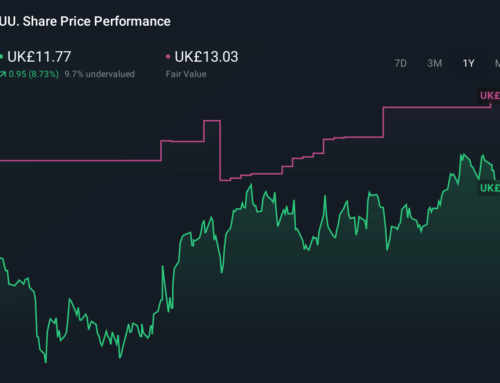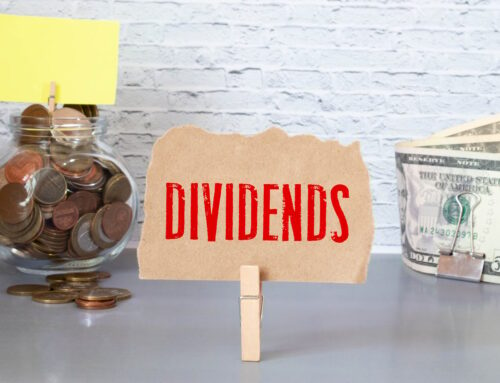GWA Group Limited (ASX:GWA) has caught the attention of institutional investors who hold a
April 20, 2025
-
Significantly high institutional ownership implies GWA Group’s stock price is sensitive to their trading actions
-
The top 9 shareholders own 51% of the company
-
Ownership research along with analyst forecasts data help provide a good understanding of opportunities in a stock
Our free stock report includes 1 warning sign investors should be aware of before investing in GWA Group. Read for free now.
If you want to know who really controls GWA Group Limited (ASX:GWA), then you’ll have to look at the makeup of its share registry. And the group that holds the biggest piece of the pie are institutions with 44% ownership. In other words, the group stands to gain the most (or lose the most) from their investment into the company.
Since institutional have access to huge amounts of capital, their market moves tend to receive a lot of scrutiny by retail or individual investors. Therefore, a good portion of institutional money invested in the company is usually a huge vote of confidence on its future.
In the chart below, we zoom in on the different ownership groups of GWA Group.
See our latest analysis for GWA Group
Many institutions measure their performance against an index that approximates the local market. So they usually pay more attention to companies that are included in major indices.
As you can see, institutional investors have a fair amount of stake in GWA Group. This can indicate that the company has a certain degree of credibility in the investment community. However, it is best to be wary of relying on the supposed validation that comes with institutional investors. They too, get it wrong sometimes. When multiple institutions own a stock, there’s always a risk that they are in a ‘crowded trade’. When such a trade goes wrong, multiple parties may compete to sell stock fast. This risk is higher in a company without a history of growth. You can see GWA Group’s historic earnings and revenue below, but keep in mind there’s always more to the story.
We note that hedge funds don’t have a meaningful investment in GWA Group. The company’s largest shareholder is Perpetual Limited, with ownership of 17%. For context, the second largest shareholder holds about 7.9% of the shares outstanding, followed by an ownership of 5.0% by the third-largest shareholder.
On further inspection, we found that more than half the company’s shares are owned by the top 9 shareholders, suggesting that the interests of the larger shareholders are balanced out to an extent by the smaller ones.
While studying institutional ownership for a company can add value to your research, it is also a good practice to research analyst recommendations to get a deeper understand of a stock’s expected performance. There are a reasonable number of analysts covering the stock, so it might be useful to find out their aggregate view on the future.
The definition of an insider can differ slightly between different countries, but members of the board of directors always count. Company management run the business, but the CEO will answer to the board, even if he or she is a member of it.
Most consider insider ownership a positive because it can indicate the board is well aligned with other shareholders. However, on some occasions too much power is concentrated within this group.
Shareholders would probably be interested to learn that insiders own shares in GWA Group Limited. In their own names, insiders own AU$35m worth of stock in the AU$599m company. It is good to see some investment by insiders, but it might be worth checking if those insiders have been buying.
The general public, who are usually individual investors, hold a 33% stake in GWA Group. While this group can’t necessarily call the shots, it can certainly have a real influence on how the company is run.
Our data indicates that Private Companies hold 17%, of the company’s shares. Private companies may be related parties. Sometimes insiders have an interest in a public company through a holding in a private company, rather than in their own capacity as an individual. While it’s hard to draw any broad stroke conclusions, it is worth noting as an area for further research.
I find it very interesting to look at who exactly owns a company. But to truly gain insight, we need to consider other information, too. Consider risks, for instance. Every company has them, and we’ve spotted 1 warning sign for GWA Group you should know about.
Ultimately the future is most important. You can access this free report on analyst forecasts for the company.
NB: Figures in this article are calculated using data from the last twelve months, which refer to the 12-month period ending on the last date of the month the financial statement is dated. This may not be consistent with full year annual report figures.
Have feedback on this article? Concerned about the content? Get in touch with us directly. Alternatively, email editorial-team (at) simplywallst.com.
This article by Simply Wall St is general in nature. We provide commentary based on historical data and analyst forecasts only using an unbiased methodology and our articles are not intended to be financial advice. It does not constitute a recommendation to buy or sell any stock, and does not take account of your objectives, or your financial situation. We aim to bring you long-term focused analysis driven by fundamental data. Note that our analysis may not factor in the latest price-sensitive company announcements or qualitative material. Simply Wall St has no position in any stocks mentioned.
Terms and Privacy Policy
Search
RECENT PRESS RELEASES
Related Post




